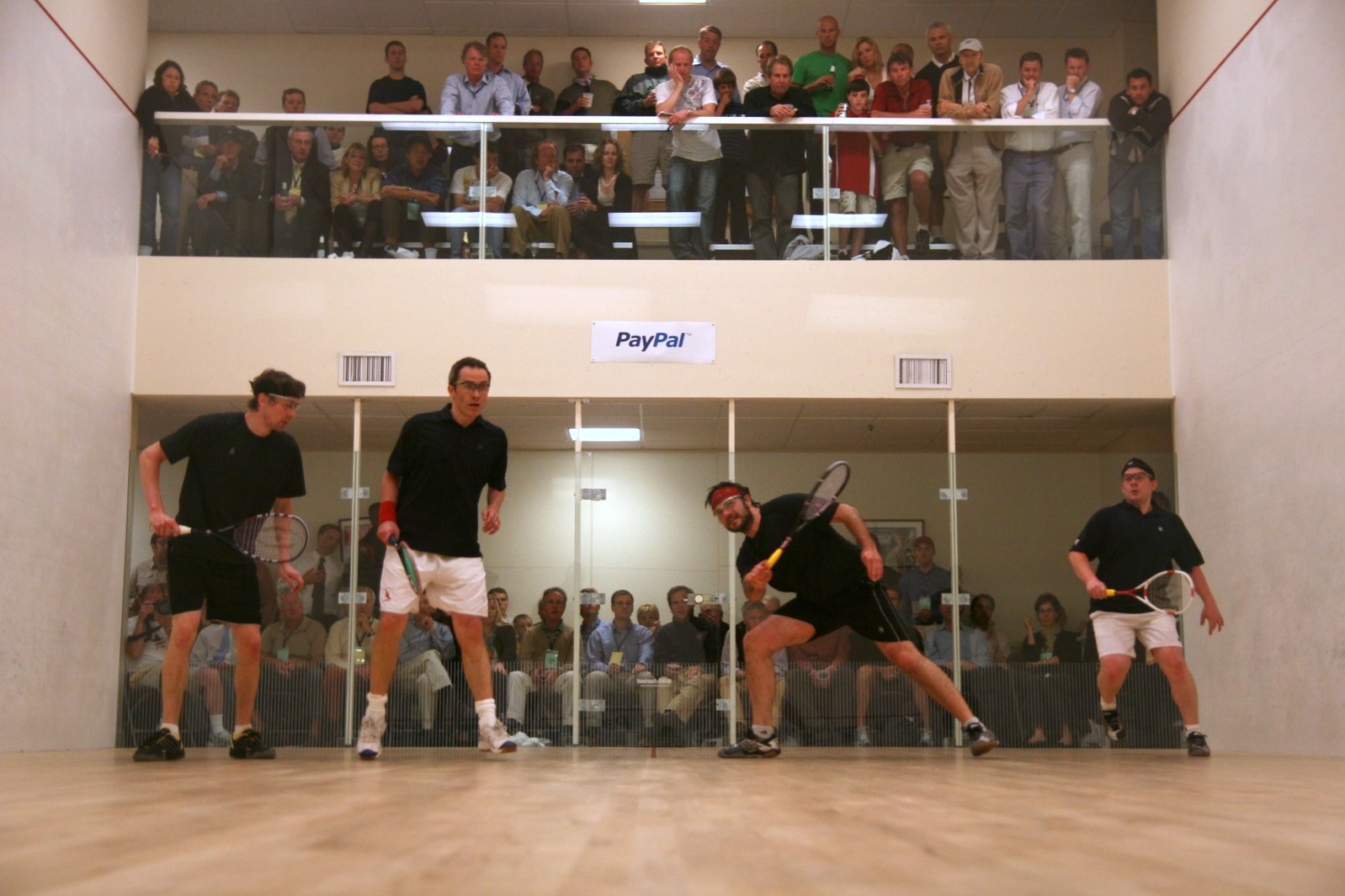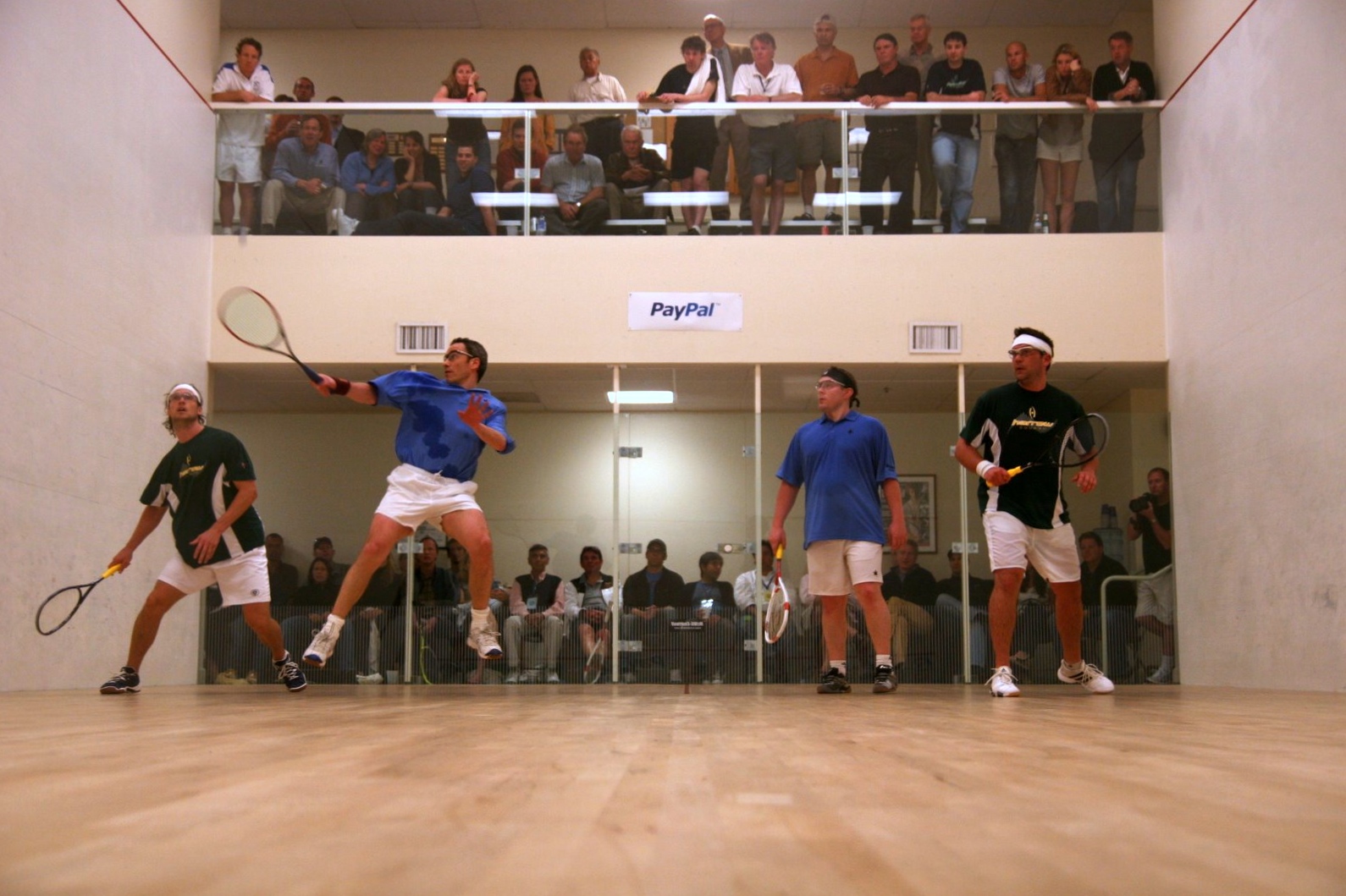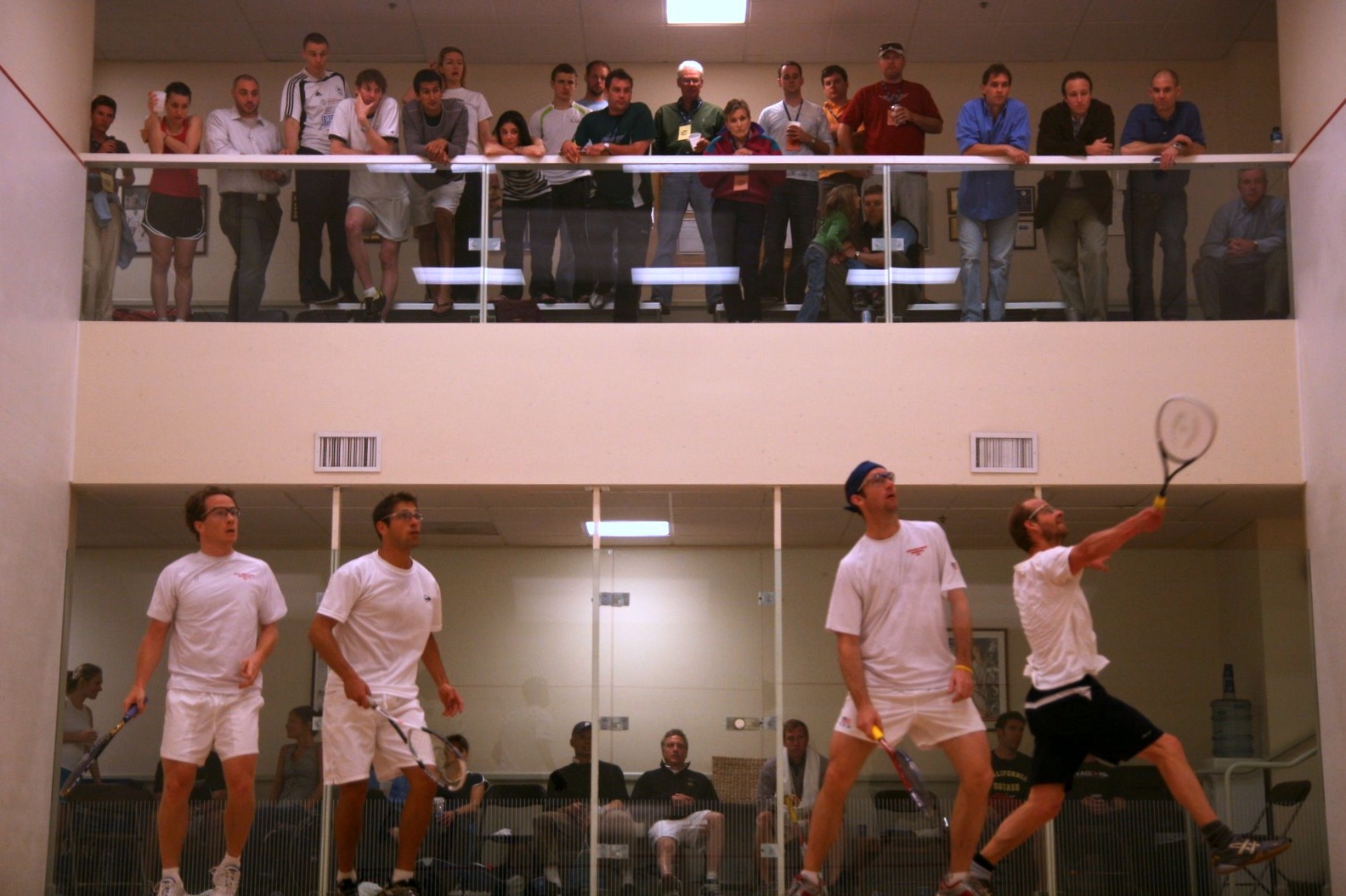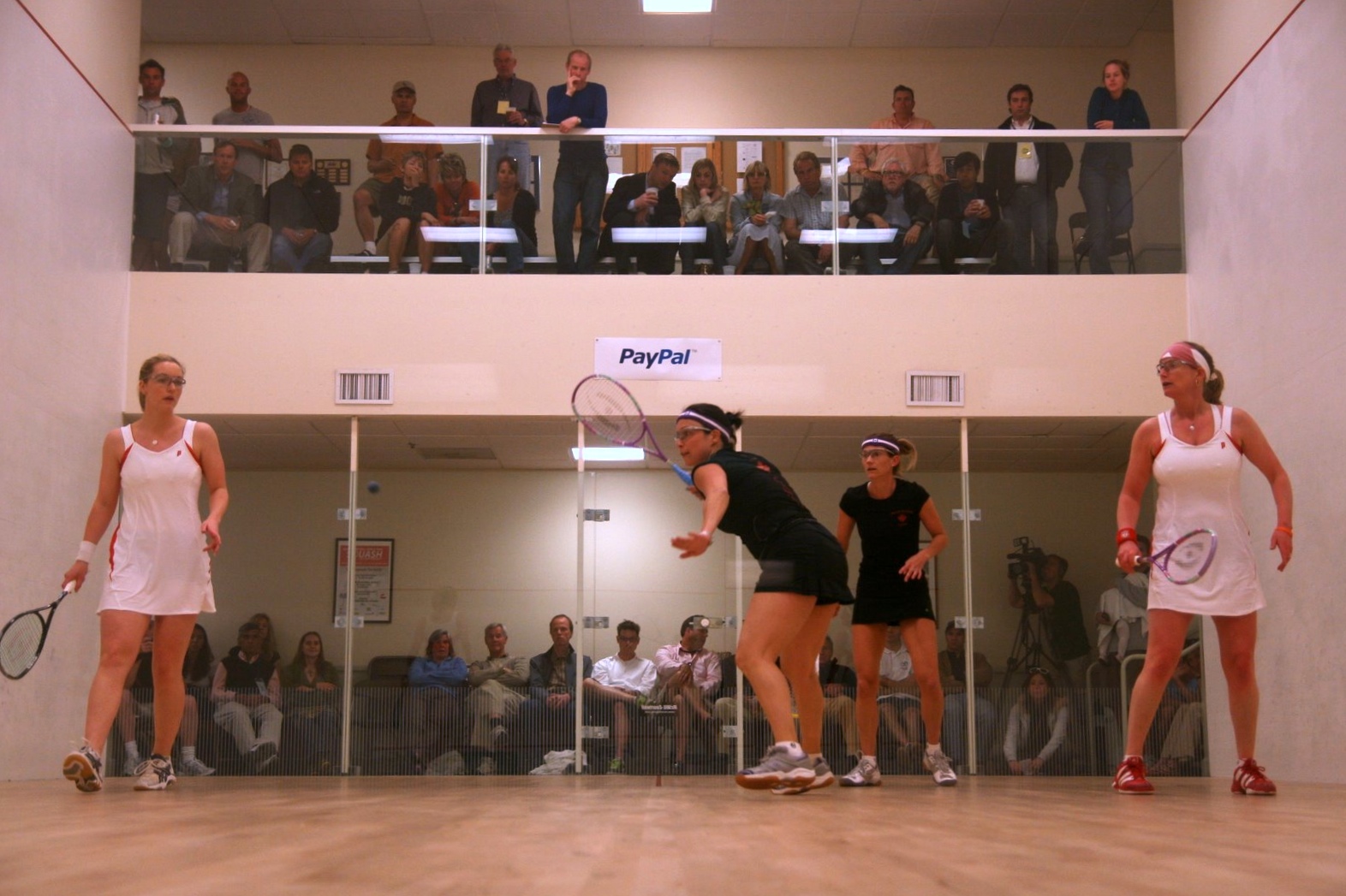
By James Zug
Photos by John Lau
The World Hardball Doubles is a pretty venerable title for a world championship. It is as old as the official World Juniors, and only six years younger than the World Open singles. The men’s draw was started in 1981 when Mohibullah Khan & Clive Caldwell triumphed. After five stagings in the 1980s, it was turned into an official World Squash Federation event in 1994 and became biennial. In recent years, the tournament has suffered for both a lack of player interest and prize money, and was more or less confined to U.S. and Canadian players. A new format, coming out of a sub-committee on the U.S. Squash Doubles Committee, was suggested to revive it.

In May 2009, the University Club of San Francisco hosted the $35,500 PayPal World Hardball Squash Doubles Championships. Following the system for the occasional (there have been three) World Softball Doubles Championships, the WSF-sanctioned tournament was made up of teams selected by individual country’s governing bodies; each player had to be eligible to play for that nation. Thus, the various countries suddenly had to think about hardball doubles which has provided much-needed exposure for our century-old game (the Scottish even had a playoff on the 1935 hardball doubles court in Edinburgh to select its players).
And the tournament finally deserved the prefix “World.” Eight countries sent a total of 24 teams: the US, Canada, Australia, Egypt, England, Scotland, Ireland and New Zealand. Teams sported snazzy matching and patriotic garb. The University Club, under the leadership of Kevin Jernigan, put on a great show. Two local television stations broadcasted from the event and one could follow Jernigan’s Twitter feed for up-to-the-minute reports.
One story was about the emergence of Suzie Pierrepont. The twenty-four year-old Englishwoman and her teammate, Fiona Geaves, lost in the women’s finals to Jessica DiMauro & Stephanie Hewitt of Canada 15-6, 6-16, 15-13, 15-12. Pierrepont was a huge difference maker on the right wall in the match. She is based in Chestnut Hill and trains at the Cynwyd Club with Shane Coleman and in Wilmington with Damon Leedale-Brown. The only WDSA-ranked woman (No. 6 this season) in the WISPA top thirty (she was a career-high 27 in May), Pierrepont represents a future of doubles: a young, highly-skilled woman who is excelling at singles and doubles at the same time. She picked up hardball doubles in January 2008. In three months she reached the semis of the national doubles. In singles her ranking skyrocketed and in December she won the Macau Open her fourth WISPA title, beating two top-20 players in the process. In the weeks that followed Pierrepont & Dana Betts won the Creek Club Cup and the Players Championship in New York.

DiMauro & Hewitt were expected to breeze to the world title. They have been playing for a long time and are the No. 1 and 2 players on the WDSA pro tour, having teamed up to win in St. Paul and Greenwich this past season. But Pierrepont is one to watch for the future as well, as the WDSA tour develops.
On the men’s side, only one top ISDA team from this season was able to partner together. As they were the second-best ranked team, it was, as with DiMauro & Hewitt, pretty much a given that they would win the tournament. But Paul Price & Ben Gould had to put in even more work in fulfilling that expectation. The 17-team draw was full of roadblocks. Nearly half of the matches went longer than three games; the closest one was a five-gamer between Dan Roberts & Steve Richardson of Ireland (Roberts is at the University Club of Boston; Richardson works at a hedge fund in London) and James Hewitt & Mike Pirnak of Canada. That is no typo—the left wall player traditionally gets listed first and the veteran Pirnak, though a southpaw, was playing the right wall.

The World Doubles also provided a chance for everyone to see Gary Waite one more time. The greatest doubles player in history, Waite had won four world titles with three different partners. But he is now 42 and has been in retirement for two years. Sadly, his game has dramatically declined. He and Viktor Berg, a No. 1 ranked ISDA player, won their opening round match over England’s Ben Howell & Mike Puertas, but went down very quickly to U.S.’s Preston Quick & Whitten Morris in the quarters.
Both semifinal matches went to four games, as did the finals. The one exciting result came when third seeds England’s John Russell & Clive Leach beat the second seeds Australia’s Damien Mudge & Matt Jenson 15-12, 15-10, 15-17, 15-12 in the semis. In the third game they were up 14-11 and failed to convert any of their match points, but they regrouped to win the fourth game.
In the finals, Russell did not convert enough winners, while Price proved too quick and too tough. He won the 2001 World Softball Doubles in Melbourne, so the former World No. 4 singles player now has a world title in each version of doubles.





